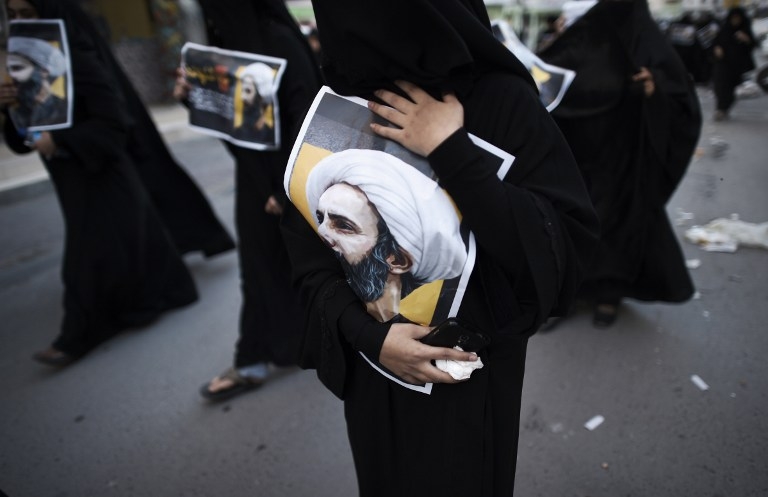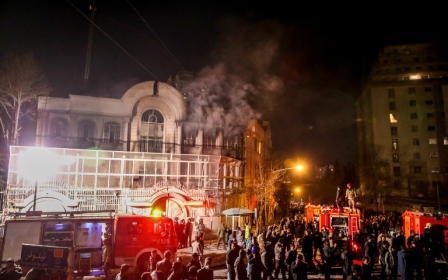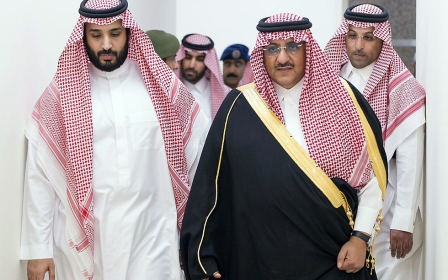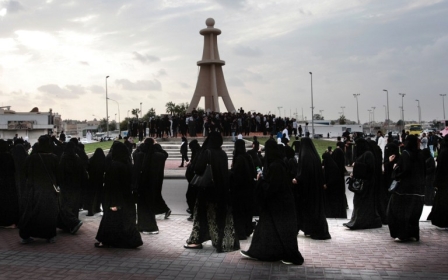US thought Nimr's allegiances lay with Iran: Wikileaks

The United States believed executed Shia cleric Sheikh Nimr al-Nimr's political allegiances conceivably lay with Iran despite his denials, a 2008 US diplomatic cable, leaked through Wikileaks, reveals.
On Saturday, setting of a firestorm of criticism from Iran to the UN, the Saudi government executed 56-year-old Nimr and 46 others, mostly people linked with al-Qaeda attacks in the kingdom in the 2000s, on terrorism charges.
Eight years earlier, a US official, described in a Wikileaks cable only as a political officer, met Nimr in the cleric's hometown of Awamiyah, in Saudi Arabia's eastern Qatif area.
During the wide-ranging conversation, Nimr - who according to the cable had recently delivered sermons and given interviews supporting Iran - sought to distance himself from the country, "saying that piety is only God alone, and that all nations act in their own interests".
"Al-Nimr said he was against the idea that Saudi Shi'a should expect Iranian support based on some idea of sectarian unity that supersedes national politics," the cable reports.
The officer's analysis at the end of the cable, however, calls Nimr's comments on Iran into question.
"The Sheikh eagerly attempted to divorce himself from the image of being an Iranian agent," the cable said. "Though it is certainly possible that al-Nimr changed his tune on these issues for the company of a US diplomat, the pace, passion and certainty with which he spoke seemed to reflect true belief, and not cold political calculation or manipulation. In any case, his ideas seem to be internally contradictory."
While it might be possible to theoretically distance himself from Iran while also arguing for Saudi Shias' rights to seek foreign assitance, Iran was the only country at the time that would have worked with the community to undermine the Saudi government, the cable reads.
"It is perhaps this reality that leads some local analysts to believe that al-Nimr would not hesitate to join Iranian agents in a possible uprising," the cable said.
Eventhough he argued for the right of the Saudi Shia community to seek external support in the case of a conflict, Nimr indicated during the conversation that he would not support violence.
"When asked by [the political officer] as to whether his tough talk promoted violence or simply warned of it as a possible repercussion of continued discontent in the Shia community, al-Nimr responded that if a conflict were to occur he would 'side with the people, never with the government'," the cable said.
"He continued by saying that though he will always choose the side of the people, this does not necessarily mean that he will always support all of the people's actions, for example, violence."
Looking at geopolitics more generally, Nimr told the political officer repeatedly that he viewed governments, particularly the Saudi leadership, as "reaction institutions".
"Al-Nimr stated that whether it is the Holy Mosque takeover, Iranian Revolution and [Eastern Province] Shia uprising of 1979; the realities of external pressure after September 11, 2001 and internal panic after the Saudi Arabia attacks of 2003 and 2004; or the advent of satellite television and the Internet," the cable said, "the Saudi government has never introduced change but has instead always been forced to change."
According to the cable, Nimr also:
- believed it was only through protest and a "no fear attitude" towards the Saudi government that he was released from Saudi custody in 2006 during a period he said that authorities beat him;
- dismissed municipal councils as cosmetic and ineffective institutions designed to appease Western allies in a bid to include democratic functions;
- hoped younger Saudi generations, particularly those studying abroad, would bring "more tolerant attitudes" back to the kingdom;
- said Shia Muslims were better suited to be US allies than Sunni Muslims because of their shared ideals of justice and freedom.
New MEE newsletter: Jerusalem Dispatch
Sign up to get the latest insights and analysis on Israel-Palestine, alongside Turkey Unpacked and other MEE newsletters
Middle East Eye delivers independent and unrivalled coverage and analysis of the Middle East, North Africa and beyond. To learn more about republishing this content and the associated fees, please fill out this form. More about MEE can be found here.




